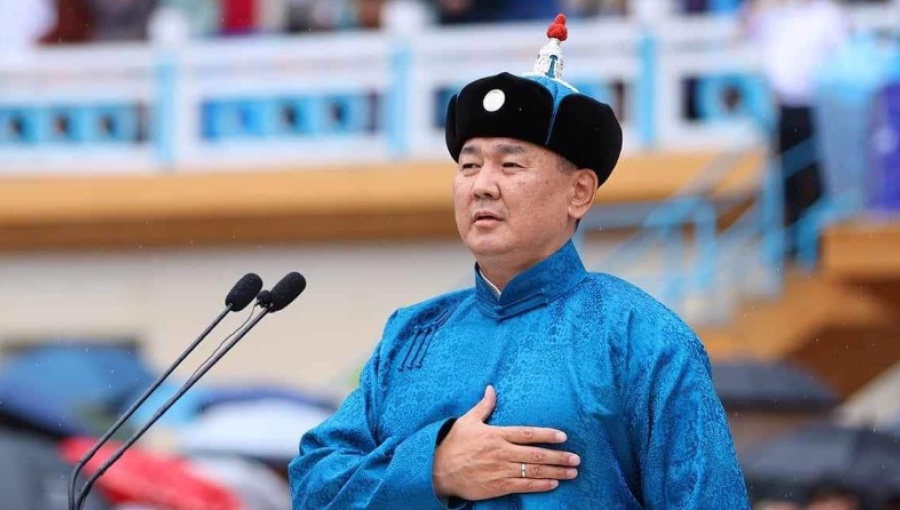France agrees lithium exploration deal with Mongolia during presidential visit

France has agreed a lithium exploration deal with Mongolia.
The deal was announced as Mongolian President Ukhnaagiin Khurelsukh continued with a five-day October 10-14 visit to France, which comes less than six months after President Emmanuel Macron paid a visit to Ulaanbaatar. Mongolia dispatches nearly 80% of its total exports to China and has growing trade with Russia, but it is intent on substantially diversifying its trade relations beyond China and Russia, the two big neighbours that sandwich the landlocked country.
French officials on October 12 said the exploration deal was in a preliminary phase. France, they said, would invest €400,000 ($422,000) in searching for lithium in Mongolia via its BRGM geological service. Explorers have identified a land basin in Mongolia that is potentially lithium-rich.
Critical metals such as lithium are needed as part of the global technological transition to clean energy and cleaner transport, such as with electric vehicles (EVs), in the face of the climate crisis.
Also announced amid the ongoing presidential visit was an understanding that French nuclear group Orano would be welcome to step up efforts at developing a uranium mine with Mongolian partners under the Badrakh Energy holding. It is assessed that the mine could account for 4% of global uranium supplies.
France’s uranium import horizon has been complicated by the coup in Niger, from where the French obtain much of the critical metal required to make fuel for the French fleet of nuclear reactors. Paris’ relations with Niger have been damaged by the coup.
Another deal outlined by French officials will see France back a loan for Mongolia to buy a communication satellite from French company Thales Alenia Space.
President Khurelsukh was on October 11 treated to an evening concert of traditional Mongolian music at the Palace of Versailles.
According to a report from Mongolia’s Montsame News Agency, during his visit on October 13, Khurelsukh, at the History Museum of Nantes, will open an exhibition entitled "Genghis Khan – how Mongols changed the world." It focuses on Mongolia's founding father and the expansion of the Mongol empire—the biggest the world has ever known.
Given sensitivities, the exhibition does not include any artefacts from China, though it was originally meant to. It only presents objects "from the national collections of Mongolia, including a significant number of national treasures, supplemented by the contribution of objects from major French and European museums".
Much as with Central Asia, the Western powers are vying with Russia and China for increased influence in, and trade and investment with, Mongolia against a backdrop of the shifting geopolitical environment related to events such as Russia’s invasion of Ukraine. Mongolia is generally very willing to discuss expanded economic ties with the US and European nations, though how much of the talk is likely to translate into action is yet to become apparent. Mongolian Prime Minister L. Oyun-Erdene visited Washington DC in August and met with US Vice President Kamala Harris.
Areva Mines, now part of Orano, became involved in exploring Dornogovi province for uranium since 1997. The World Nuclear Association states that the Zoovch Ovoo deposit has resources of over 54,000 tonnes of the silvery grey metal.
In 2015, nuclear cooperation between France and Mongolia took a step forward with the creation of Badrakh Energy. The joint venture is controlled by Orano subsidiary Areva Mongol (66%), while Mongolia’s Erdenes Mongol, through its subsidiary Monatom, holds 34%.
Erdenes Mongol is reckoning with a JV investment of around a billion euros over 22 years, with an expected income of €5.5bn. Orano has estimated that a two-year pilot deal with new mining processes, launched in 2021, will generate 20 tonnes of uranium.
Macron reportedly wants full production to start during the remainder of the autumn. Western nations would like to entirely switch away from Russian uranium as they seek to inflict a heavy economic toll on Moscow in response to its war in Ukraine.
Both France and the US have also stated an interest in assisting Mongolia in the mining of critical minerals including rare earth elements (REEs).


Follow us online